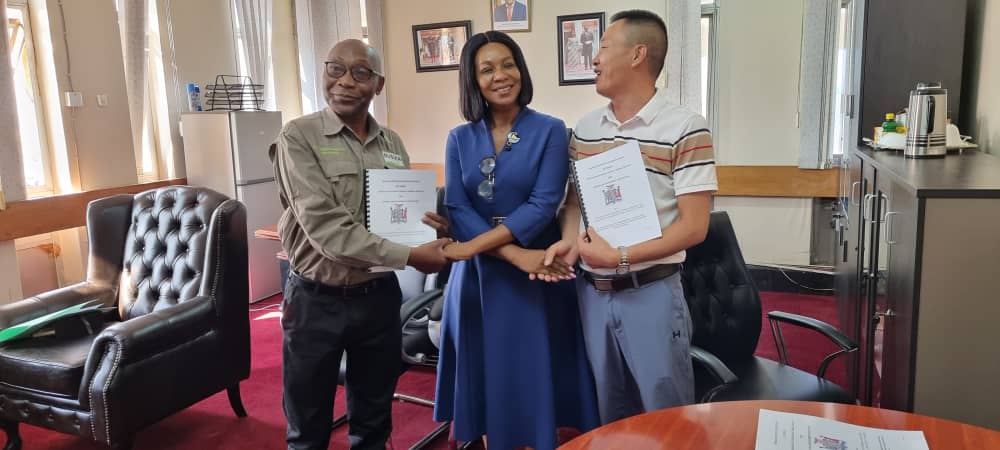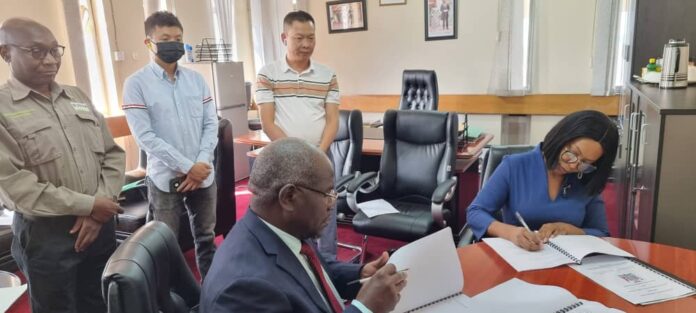Musika, Zhongkai International (Z) Limited and Government, through the Department of Resettlement, signed a tripartite agreement on 17th October, to govern the implementation of the Cassava Seed Multiplication and Value Chain Promotion Project around targeted resettlement schemes in Zambia.
Permanent Secretary for Resettlement under the Office of the Vice President – Ms Mavis Nkomeshya, Zhongkai International Managing Director – Mr. Chen Guiping, and Musika Managing Director – Mr. Reuben Banda signed off the MOU.
Ms Nkomeshya said the MoU would form the basis upon which various interventions will be implemented to support the commercialization of cassava among smallholder farmers. She said the cassava value chain promotion project was about improving the lives of farmers that grow cassava in the resettlement schemes.
 “The MoU we are signing today is a very important step in the transformation agenda of the new dawn administration. As government, our vision is to turn resettlement schemes into productive agricultural hubs and in doing so, we want to promote partnerships that provide opportunities to our settlers and farmers to produce more. We have the land; we have the people to grow food. This MoU will provide linkages to opportunities for our farmers,” she said.
“The MoU we are signing today is a very important step in the transformation agenda of the new dawn administration. As government, our vision is to turn resettlement schemes into productive agricultural hubs and in doing so, we want to promote partnerships that provide opportunities to our settlers and farmers to produce more. We have the land; we have the people to grow food. This MoU will provide linkages to opportunities for our farmers,” she said.
And Mr Chen disclosed that Zhongkai would invest in demonstration plots for the fast maturing cassava variety which will be key in supplying cassava cuttings to farmers in the resettlement schemes.
“The improved variety is disease tolerant and matures between 6months to a year. We will provide a ready market for the dry cassava which will feed into our ethanol plant with the current capacity of 200 tonnes per day. There are plans to expand the capacity of the plant to 300 tonnes per day. From our estimation, each household growing 1ha of cassava can realise a net profit of K30,000,” she explained.
Meanwhile, Mr Banda noted the partnership will support the attainment of Zambia’s nutrition agenda, improve livelihoods and incomes, particularly for rural women and youth.
He explained tripartite agreement will allow the institutions to leverage on each other’s strengths to also identify and address industrywide challenges – including those requiring changes in policy aimed at supporting the development of the cassava sector across the country.
“Having invested about US$ 1.2 million to-date via processors and aggregators, and considering that cassava has emerged as the second most produced and consumed crop after maize, Musika believes that this value chain provides a more sustainable base for rural industrialisation and with great potential to attract multiple players,” he said.

